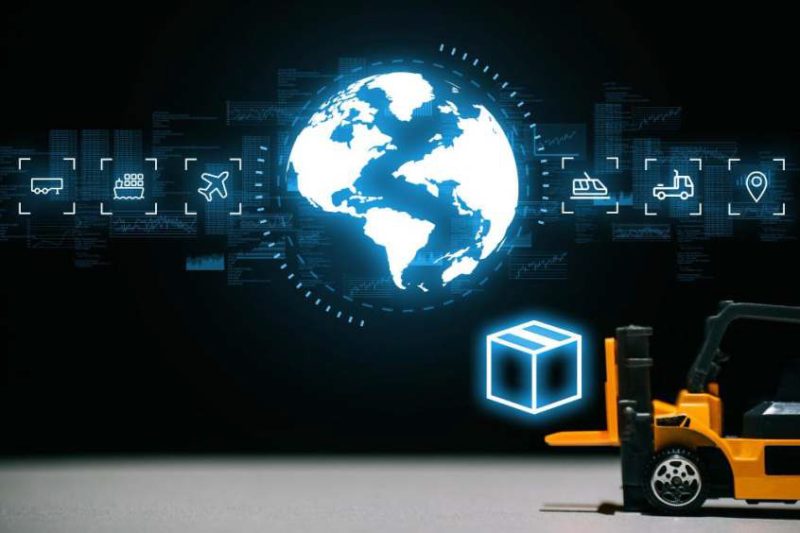Global logistics industry must embrace digitalization to keep up with changing times
Still recovering from the onslaught of the COVID-19 pandemic while confronting other challenges, the world now heavily relies on the logistics industry to facilitate global business activities.
The industry has become the lifeblood of global trade in recent years it has massively grown in value to €8.4 trillion in 2021 and is projected to further grow to over €13.7 billion by 2027, according to experts.
With the emergence of smart technologies and the so-called fourth industrial revolution, the industry is up for the challenge of embracing digitalization.
But while many countries have begun their digital transformation more than a decade ago, many are also still struggling to keep up with the changing times due to scarce resources and skilled workforce.
Vineet Malhotra, co-founder and director of Kale Logistics Solutions, one of the world’s most trusted global cloud-based tech providers for some Fortune 500 companies worldwide, offering a comprehensive suite of tech solutions for the logistics industry, says there’s no way to move forward but to embrace digitalization.
“There are two buzzwords in the overall global supply chain these days. One is sustainability. The second buzzword is digitalization. It means bringing in some solutions to empower the industry to digitize itself to seamlessly connect with others and streamline their operations,” Malhotra told Air Cargo Update.
Malhotra’s company which was formed in 2010 was among India’s pioneers in the tech industry that specializes in logistics and the global transport industry. Of its more than 5,500 clients worldwide, over 50 are airports, and 50 are seaports around the world.
Kale is helping the global logistics industry transform its operations with digital technologies.
“15 years back, when we were looking at it, we saw the need for digitalization,” says Malhotra, an electronics communications engineering graduate with post-studies in management. “We (collaborated) with the Air Cargo Agents Association of India (ACAAI). The association became the executive sponsor of the project to build a cargo community system. They didn’t put any money. But they supported our idea. We had our break at Mumbai Airport when it was automated.”
Today, Kale’s solutions are used in more than 50 airports across the world and to more than 50 seaports worldwide in addition to thousands of other companies in logistics, and air freight, among many others in the transport sector.
“Digitalization is essential for businesses to remain competitive,” said Malhotra. Digitalization is indeed no longer an option for businesses in the global logistics industry: It’s a necessity to streamline the process and save time and money.
Apart from software solutions, many companies in the industry have introduced smart technologies in their system which include automated storage and retrieval systems (AS/RS), automated sorting systems, de-palletizing/palletizing systems, conveyor systems, automatic identification and data collection (AIDC), order picking), software, and services), end-user industry (food and beverage, post and parcel, groceries, general merchandise, apparel, manufacturing), among other things.
Opening doors for innovations with collaboration
Digitalization opens doors for innovation in the logistics industry. Emerging technologies like artificial intelligence, big data analytics, and the Internet of Things (IoT) have the potential to revolutionize logistics operations.
By leveraging these technologies, companies can develop predictive maintenance strategies, optimize transportation networks, and create data-driven solutions for complex logistics challenges. This focus on innovation fosters continuous improvement and paves the way for future growth.
At the two-day field meeting and conference hosted by the International Federation of Freight Forwarders Associations (FIATA) RAME (Region Africa Middle East) and the UAE National Association of Freight and Logistics (NAFL) held at the Atlantis Dubai in March, Kale signed a Memorandum of Understanding (MoU) with NAFL agreeing to help developing digital solutions to streamline processes and data analytics to facilitate global trade.
The agreement aims to further drive digitalization in the UAE logistics sector by enabling NAFL stakeholders, members, and the private sector in general to improve efficiency and transparency and benefit from a digital platform that supports operational processes and data sharing between stakeholders and facilitates the paperless exchange of trade-related information. The platform, which will initially focus on the UAE market, aims to improve trade flows within the region and capitalize on the strategic location and connectivity of the country and the entire RAME region.
“The FIATA-RAME conference was a valuable platform to foster collaboration and explore innovative solutions. The meeting identified several key areas for improvement in the regional logistics sector. One of our focus areas is harnessing the opportunities offered by digitalization, particularly in the private sector, which includes many of our members,” said Nadia Abdul Aziz, President of NAFL.
“To this end, our partnership with Kale Logistics will help private sector players to streamline processes through digitalization, measure sustainability data and simplify business processes.
In the meantime, we are also talking to entities, which include the National Information Centre, global audit experts and collaboration between the government players and the private sector to improve business and improve the sustainability of the sector. We aim to turn the challenges in the industry into opportunities, improve the flow of trade in the region and utilize the connectivity of the UAE and the region to overcome the current challenges,” she explained.
The two-day event brought together key players from the African and Middle Eastern logistics and global experts from the industry, serving as a crucial platform for knowledge sharing, forging partnerships, and charting a path toward a more resilient and collaborative logistics landscape in Africa and the Middle East.


